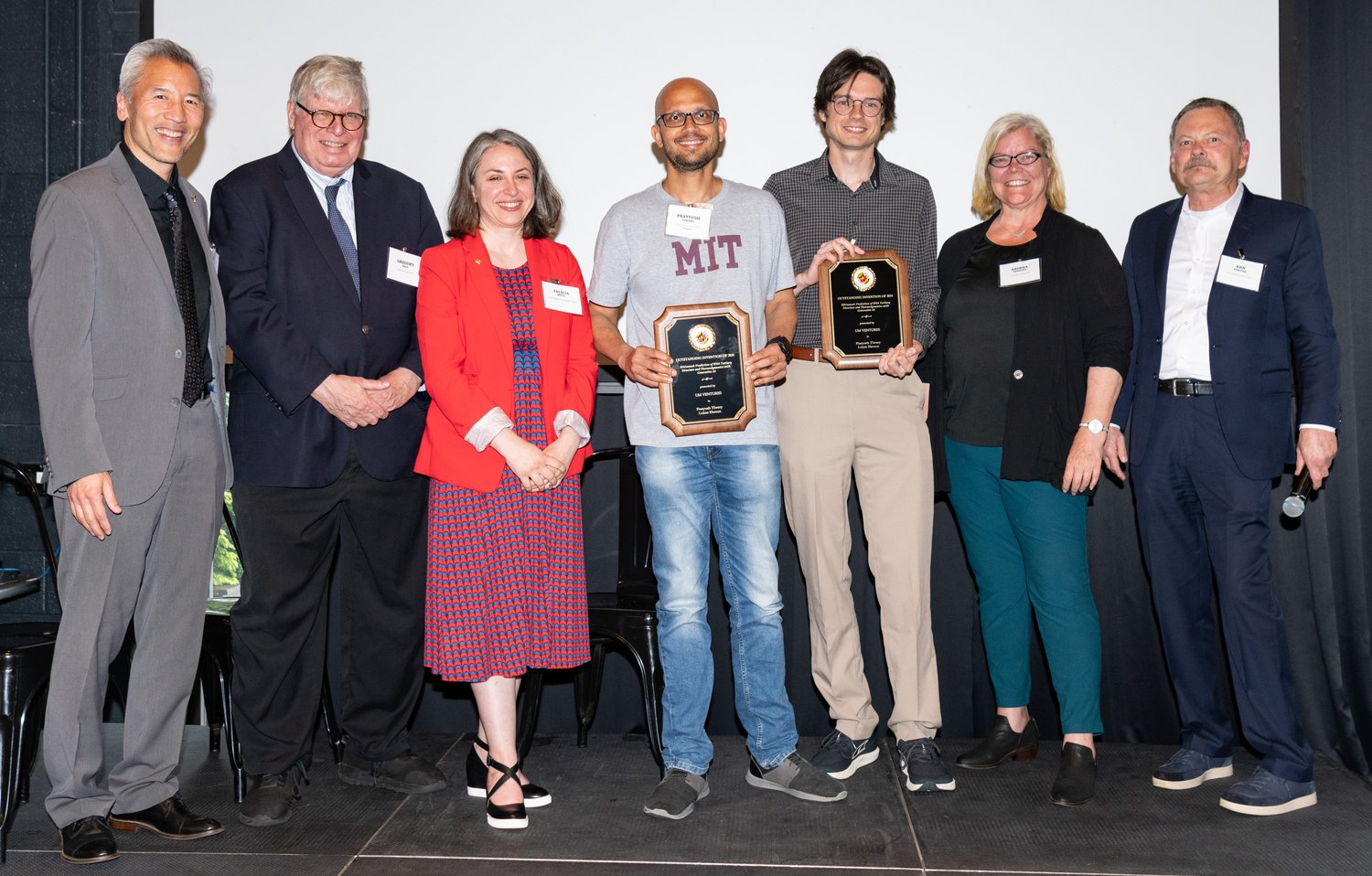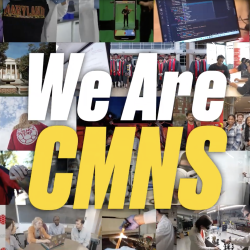Pratyush Tiwary Receives UMD Invention of the Year Award

University of Maryland Professor Pratyush Tiwary and biophysics doctoral student Lukas Herron received the Life Sciences Invention of the Year Award as part of Innovate Maryland—an annual celebration of University of Maryland researchers’ creativity in translating cutting-edge research into practical, impactful solutions to address global challenges.
Tiwary is a professor in the Department of Chemistry and Biochemistry and the Institute for Physical Science and Technology (IPST) at UMD, where he holds the Millard and Lee Alexander Professor in Chemical Physics. He is also a professor of Biochemistry & Molecular Biology at the University of Maryland School of Medicine and leads therapeutic drug discovery research at the University of Maryland Institute for Health Computing.
“Tonight’s nominees for Invention of the Year are powerful reminders of what’s possible when imagination meets determination,” said Vice President for Research Gregory F. Ball. “They reflect the incredible spirit of innovation that thrives across our research community—a community united by a shared vision to turn bold ideas into lasting impact.”
Tiwary and Herron’s invention “RNAnneal: Prediction of RNA Tertiary Structure and Thermodynamics With Generative AI” is a breakthrough in computational biology that could reshape how we design drugs targeting RNA—a fast-emerging frontier in medicine. This two-stage, AI-driven pipeline first generates thousands of potential RNA structures, then applies a novel thermodynamics-based model to identify the most stable configurations. It does so without relying on existing RNA data, setting a new bar with 100% prediction accuracy in benchmark tests. By dramatically improving the speed and precision of RNA-targeted drug development, RNAnneal offers new hope for treating cancer, neurological disorders, genetic conditions, infectious diseases and more.






